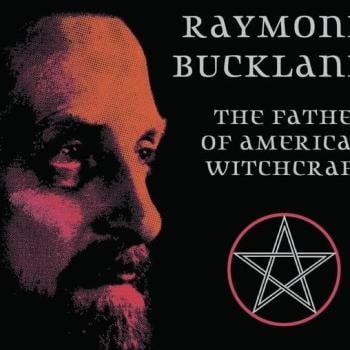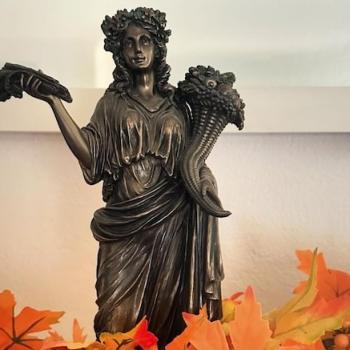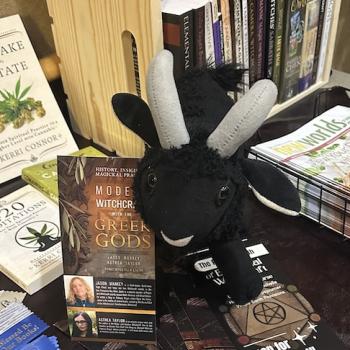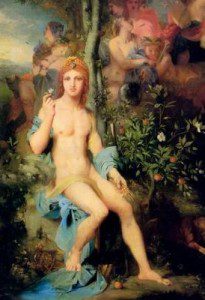 A variety of traditions and spiritualities have influenced my Paganism over the last twenty years. While I generally define myself as a Wiccan who practices British Traditional Witchcraft that’s not all I am. Depending on the ritual and context I wear (and don’t wear) a variety of different robes. My interest in so many different facets of Modern Paganism often leaves me scratching my head when presented with limiting definitions. I’ve always found my personal practice strengthened by taking a wider approach to Modern Paganism. (Many influential Witches have taken a similar path. Doreen Valiente, Starhawk, Gerald Gardner . . . . they all worked in a variety of different occult and Pagan systems and/or traditions.)
A variety of traditions and spiritualities have influenced my Paganism over the last twenty years. While I generally define myself as a Wiccan who practices British Traditional Witchcraft that’s not all I am. Depending on the ritual and context I wear (and don’t wear) a variety of different robes. My interest in so many different facets of Modern Paganism often leaves me scratching my head when presented with limiting definitions. I’ve always found my personal practice strengthened by taking a wider approach to Modern Paganism. (Many influential Witches have taken a similar path. Doreen Valiente, Starhawk, Gerald Gardner . . . . they all worked in a variety of different occult and Pagan systems and/or traditions.)
Nearly everyone I have practiced or studied with over the last twenty years has approached their Paganism in similar ways. Maybe we didn’t all stay in The Church of All Worlds, and my time as a Druid was exceedingly brief, but those experiences still affected us. When presenting ritual in public those influences often come to bear in order to create something different. I’ve learned so much by being open to outside influences and ideas. Modern Paganism is a giant buffet of spiritual experience. I have my favorite dishes, but I like to taste as much of it as I can. Even the Paganisms that didn’t particularly resonate with me were at least sampled.
Our influences help shape us. These are the influences that have had the most significant impact on my Modern Pagan practice.
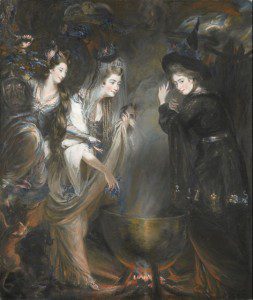 Eclectic Wicca For many people the phrase “Eclectic Wicca” is seen as a negative, I disagree. These days I’m far too ordered to want to engage exclusively in Eclecticism, but I learned so much through it in my early days. My first two years as a Pagan were spent in isolation. Periodically I’d meet someone who showed a little interest in it, but they were the minority, and we never did a ritual together. I had no teachers, only a growing collection of books and the limited wisdom that comes with a bit of experience.
Eclectic Wicca For many people the phrase “Eclectic Wicca” is seen as a negative, I disagree. These days I’m far too ordered to want to engage exclusively in Eclecticism, but I learned so much through it in my early days. My first two years as a Pagan were spent in isolation. Periodically I’d meet someone who showed a little interest in it, but they were the minority, and we never did a ritual together. I had no teachers, only a growing collection of books and the limited wisdom that comes with a bit of experience.
In many ways Eclectic Wicca taught me how to write ritual. It allowed me to be creative and craft rituals from a variety of sources. It encouraged me to seek out a multitude of goddesses and gods. Were my early rites a jumbled mess of Llewellyn nonsense*, Thelema, and various other odds and sods? Totally, but I wouldn’t change it for the world. I found a poetic voice within Eclectic Wicca and it’s a voice that remains presents in all of my public rituals.
British Traditional Witchcraft I’m an initiate of a long-standing tradition. In my experience it works better than anything else I’ve ever been exposed to. The people I’m most drawn to in the Greater Pagan Community have also generally experienced its mysteries. It’s been a huge influence on my life the past ten years (those “ten years” include a great deal of time in an Outer Court), but it’s not something always front and center in my life. It informs my decisions, it dictates a lot of how I approach ritual, magic, and even history, but since much of what goes on within it is oath-bound it has less of an influence on my life as a public Pagan.
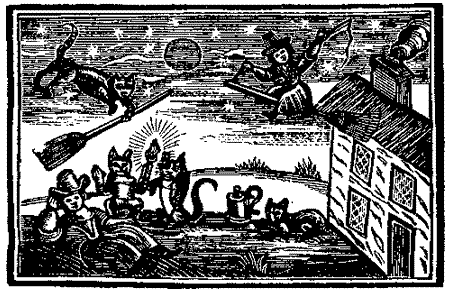 Over the years I’ve come to define British Traditional Witchcraft on my own terms, and that definition has expanded its presence in my life. I’ve come to see my time in (not oath-bound) Outer Court as an extension of British Traditional Witchcraft, one that is more easily shared. My current coven is not a part of any specific tradition but its rites and rituals generally come from my first High Priestess in The Craft. What she taught my wife and I, even in that limited setting, was just superior to anything else we had done.
Over the years I’ve come to define British Traditional Witchcraft on my own terms, and that definition has expanded its presence in my life. I’ve come to see my time in (not oath-bound) Outer Court as an extension of British Traditional Witchcraft, one that is more easily shared. My current coven is not a part of any specific tradition but its rites and rituals generally come from my first High Priestess in The Craft. What she taught my wife and I, even in that limited setting, was just superior to anything else we had done.
My first experience with any sort of “British Witchcraft” in the style of Gardner was a Samhain Ritual mostly lifted from Janet and Stewart Farrar’s A Witches’ Bible. To this day it’s one of the finest rituals I’ve ever attended. Not only did my future initiating High Priestess draw down the Goddess that night, but so did my now wife. That one ritual had a very big impact on my life, and the lives of several others that night. It set us on a path that we are still walking upon.
Hellenic Paganism I have never felt much of a connection to Celtic or Norse gods. I like the idea of Celtic Paganism, but I’ve never been able to tease a cohesive working structure out of it. Celtic Mythology mostly feels like a garbled mess to me. I certainly enjoy the holidays of the Celts and some of the traditions that go with those celebrations, but my affection for the sabbats has never translated into anything more.
 From second grande onward I have had a huge interest in Greek Mythology. I’ll admit to pronouncing Persephone as “Purse-a-phone” in the second grade, but in my defense I was in second grade. The legends of the Greek Gods always appealed to me. Their myths are strong, their legacy in art and Western Culture impossible to ignore. When I was discovering the gods it was Pan and Dionysus who were loudest in their desire to claim me as a follower. I mean no disrespect to any other pantheon of deity, but my heart was pledged to the Greek Gods back in elementary school.
From second grande onward I have had a huge interest in Greek Mythology. I’ll admit to pronouncing Persephone as “Purse-a-phone” in the second grade, but in my defense I was in second grade. The legends of the Greek Gods always appealed to me. Their myths are strong, their legacy in art and Western Culture impossible to ignore. When I was discovering the gods it was Pan and Dionysus who were loudest in their desire to claim me as a follower. I mean no disrespect to any other pantheon of deity, but my heart was pledged to the Greek Gods back in elementary school.
Over the last few years I’ve taken my love of the Greek Gods and tried to put in a more Hellenic context. A few years ago I wrote my first Hellenic-style rite, mostly influenced by Walter Burkert’s Greek Religion. When I compared that ritual to those of other Hellenic enthusiasts I found them to be pretty similar. Since then my version of “Greek Ritual” has been one I’ve repeated on numerous occasions, sometimes with the coven and other times in more public settings.
I became a Pagan because of the gods, not in spite of them. My first experiences with Pagan deity were more archetypal, but that changed over the years. Now it’s Aphrodite, Ariadne, Pan, and Dionysus who are the go to deities in my house. So much of what my wife and I do is influenced by their presence in our lives.
The Church of All Worlds The first Pagan magazine that really grabbed my attention and kept it was The Green Egg. This was the mid 1990’s and Pagan magazines were how we all communicated as a movement across state and national lines. Ideas like “may you never thirst” and “water shared is life shared” are still a part of my spirituality and both came from Oberon, Morning Glory, and the CAW. Over the years I’ve been lucky enough to share a cabin with Oberon and talk a little bit about his influence on my own Paganism, something I couldn’t imagine happening even five years ago.
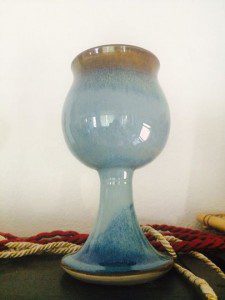 In my early years CAW was what I thought Paganism should look like. I liked Paganism as a hippy religion, and I always felt a lot of that “love the Earth as your Mother” vibe in The Church of All Worlds. It was also exceedingly sex positive, and I’ve always liked that Paganism has a place for such expression where as most religion suppresses it. One of the earliest editorials I ever read in The Egg made mention of The Grateful Dead, mixing rock and spirit was certainly appealing too.
In my early years CAW was what I thought Paganism should look like. I liked Paganism as a hippy religion, and I always felt a lot of that “love the Earth as your Mother” vibe in The Church of All Worlds. It was also exceedingly sex positive, and I’ve always liked that Paganism has a place for such expression where as most religion suppresses it. One of the earliest editorials I ever read in The Egg made mention of The Grateful Dead, mixing rock and spirit was certainly appealing too.
Pagan Festivals I’m not sure that “Festivals” count as a specific tradition, but they have influenced me. I’m most likely an advocate of “Big Tent Paganism” because I’ve seen the model work at festivals like Starwood, Sirius Rising, and PantheaCon. At such events I’ve toasted with Heathens, sipped habanero mead with Druids, talked with Witches until the crack of dawn and led eclectic rites in honor of Jim Morrison. Somehow it all worked despite our differences. A Pagandom full of good people, good music, and good times is a cornerstone of my personal practice. I absorbed a great deal of that over the years at festivals.
My Dad My father always encouraged me to read and explore. He might not always like where I’ve ended up, but I got here in large part because he never said “no” to what I wanted to read or listen to. If we could all be so lucky.
*I like a lot of what has Llewellyn has published in recent years, in fact I like it so much I wrote an article defending the publisher a few years ago. Back in my early Pagan days my library contained some howlers though, perhaps that’s more of a reflection on me than the publisher, you can take your pick. Time has not been kind to Witta: An Irish Pagan Tradition and The 21 Lessons of Merlyn.








